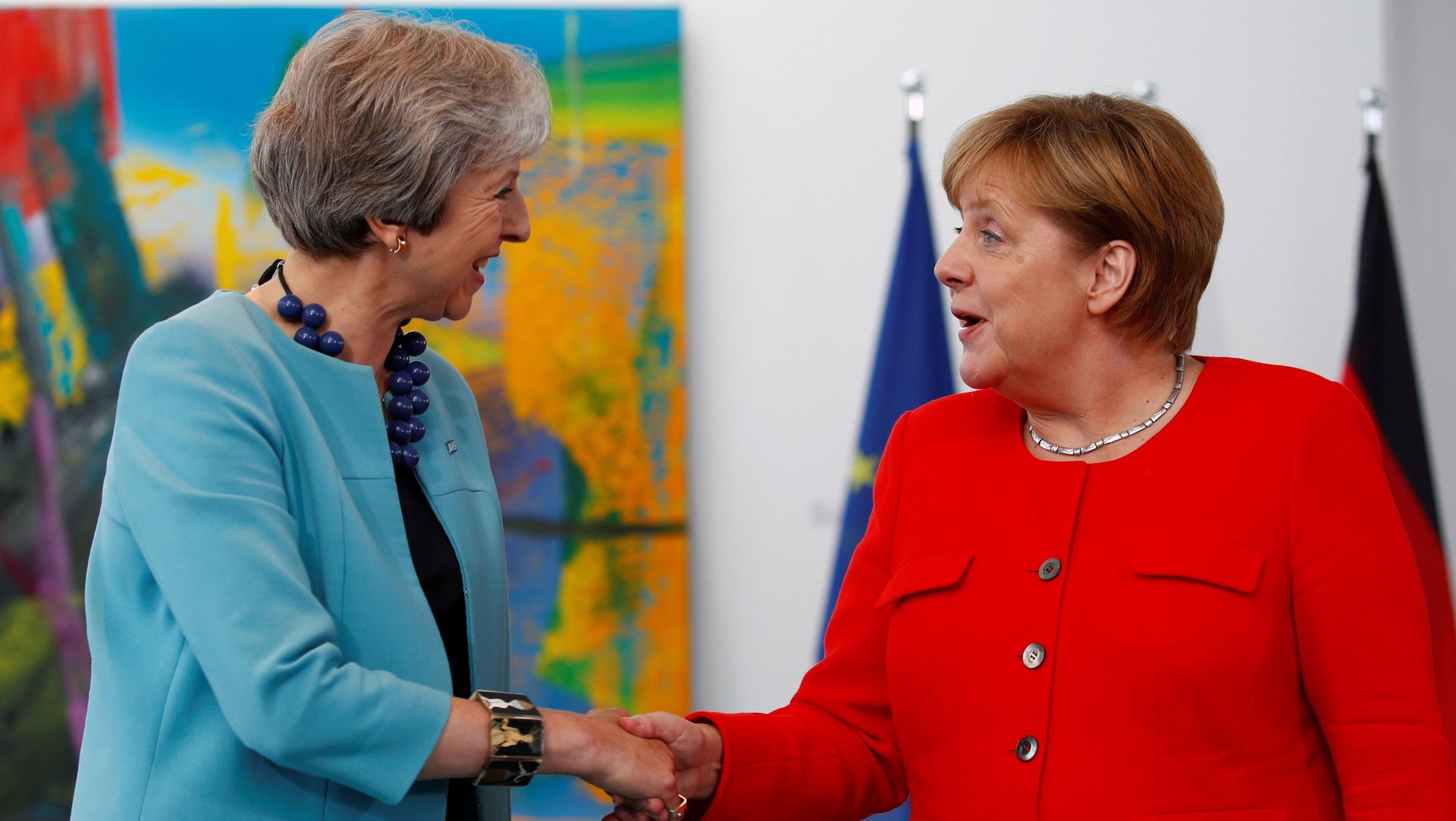Some advice for Theresa May on the art of “pre-selling” a difficult decision
Theresa May has an exciting night ahead.


Theresa May has an exciting night ahead.
The Financial Times reported today (paywall) that the UK and European Union have provisionally agreed on a text for Britain’s departure from the bloc. Prime minister May will be meeting individually with UK cabinet ministers this evening (Nov. 13) to try sell them on the deal ahead of a special cabinet meeting tomorrow at 2pm GMT.
In other words, Theresa May is reportedly doing the “pre-sell.”
The “pre-sell,” according to Tim Calkins, a professor at the Kellogg School of Management at Northwestern University, is when a person selling an idea speaks to key players ahead of a presentation to get them on board, thereby increasing the chances that the idea will be approved. ”The most persuasive presenters in business know: The sell should start well before the meeting even begins,” Calkins writes for Quartz at Work. (It’s also a marketing term that refers to getting customers to desire a product before it hits the racks.)
Agreeing on a provisional text was just one of the first hurdles May and her Brexit negotiators needed to cross as the UK has barreled towards the March 2019 Brexit deadline (a hurdle that’s been playing havoc with the pound.) May faces a parliament deeply divided between those who wish to retain close ties with the EU and those who want them cut completely, as well as disagreements over how to best avoid a hard border between Northern Ireland and the Republic of Ireland, an EU member state. She’s also in a weakened political position after last year’s general election left her Conservative Party in the minority in Parliament.
That’s why the individual meetings are so critical. Pre-selling, as Calkins writes, could not only help get May the support she needs, but also help her improve her pitch on the draft deal, and give her a boost of confidence to deliver it.
On the art of the pre-sell, Calkins advises that the presenter first come to the meeting with a draft of the idea. (It only took two years, but she got there eventually.) He also suggests:
Listen carefully to suggestions, and be sure to address the input. If someone points out a typo, and you fix it, you’ve created a positive connection. You respected their input and acted on it. If you don’t fix it, you send a very different signal: that it didn’t matter or you don’t care. This doesn’t enhance your position.
Typos are likely to be the easiest thing May will address in the days of negotiation ahead—both the UK and European countries may want changes to the treaty addressed. But if she can get cabinet ministers on board now, especially those pushing for a hard exit from the EU, she’ll have a running start.